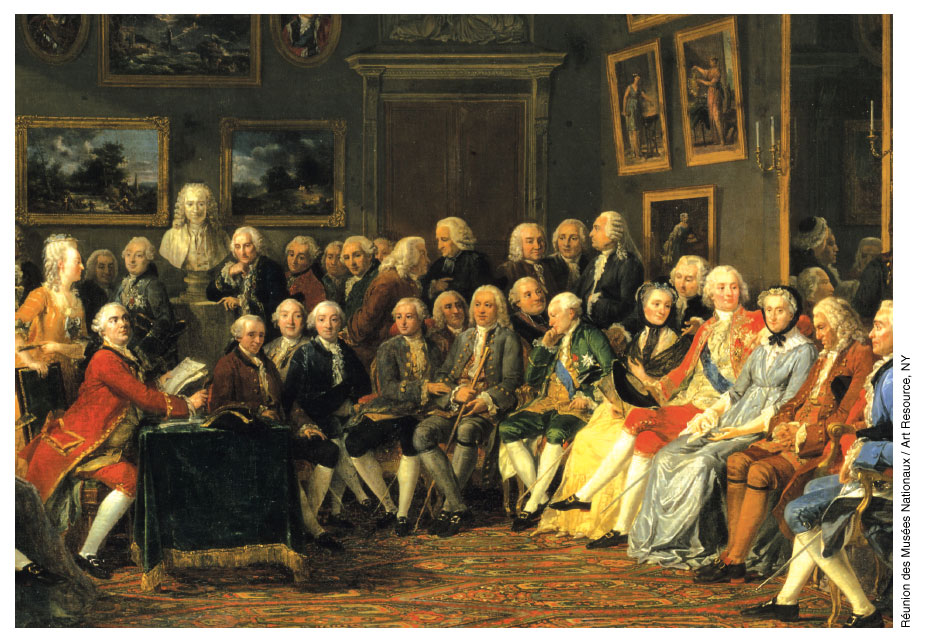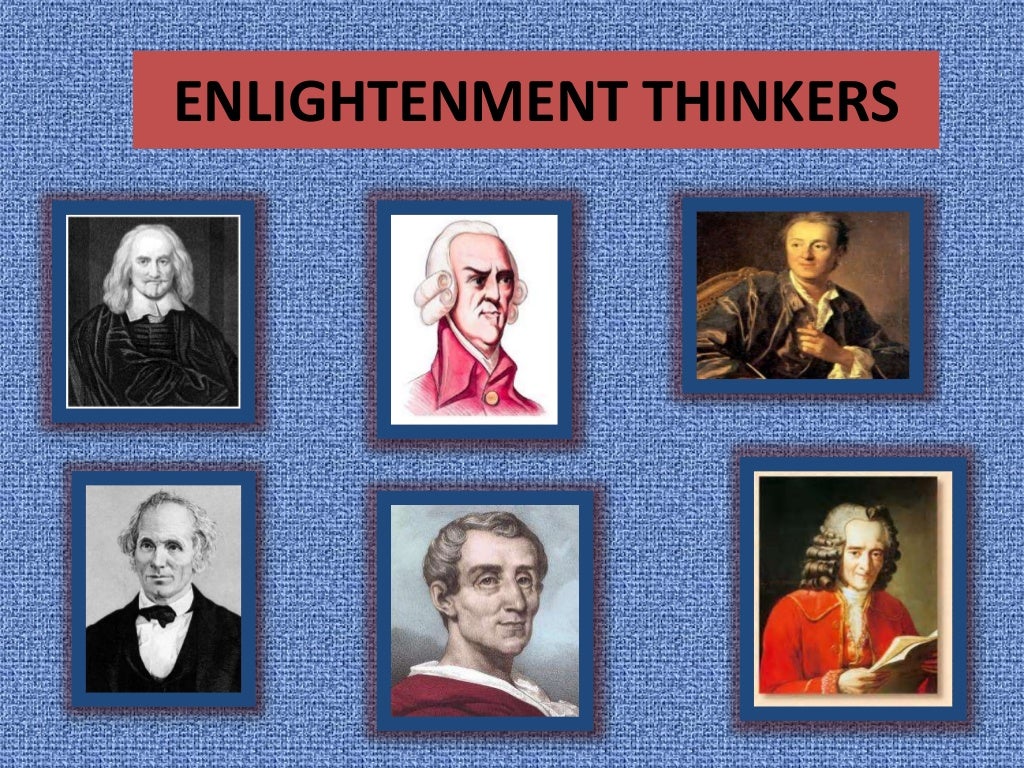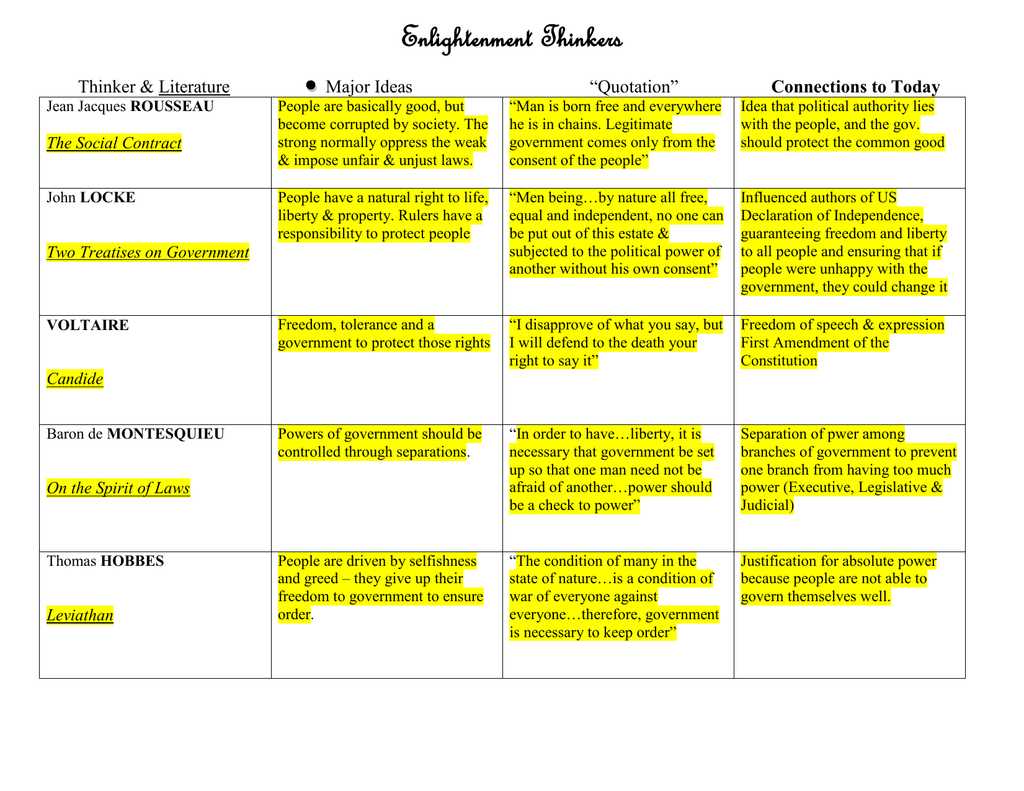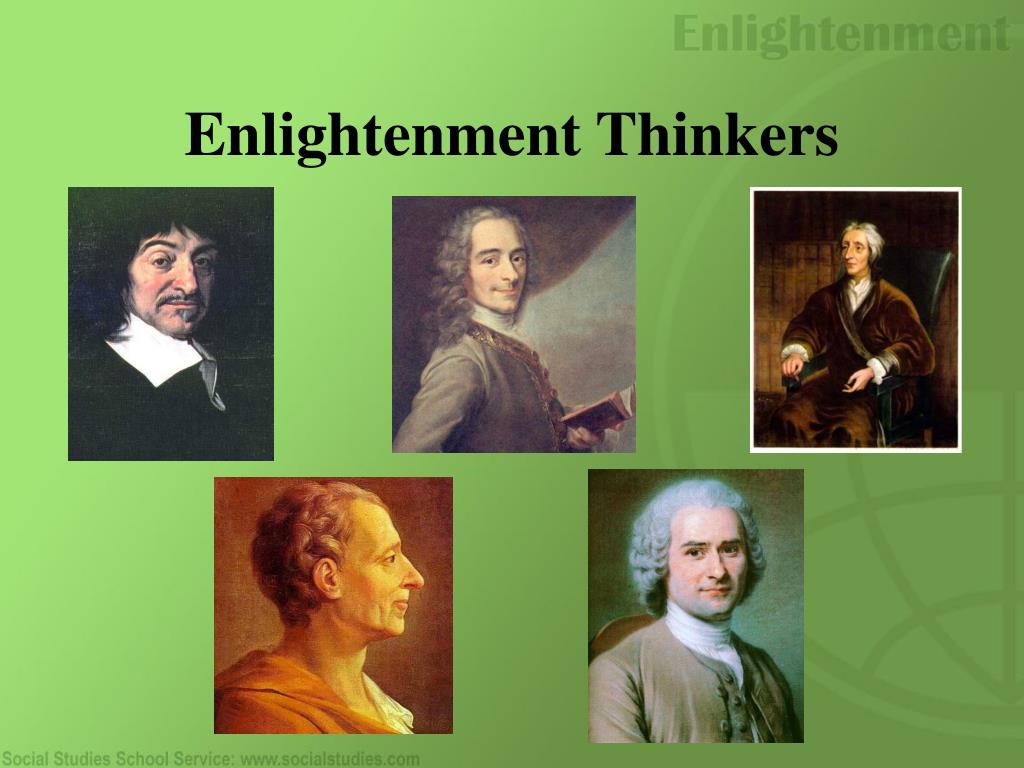How Did Enlightenment Thinkers Draw Conclusions
How Did Enlightenment Thinkers Draw Conclusions - This period, often referred to as the 'age. Web enlightenment thinkers drew conclusions by relying on science and observation. However, such questions as what was the nature of that mind? how did it compare to. Web although enlightenment thinkers retained a role for theoretical or speculative thought (in mathematics, for example, or in the formulation of scientific hypotheses), they took their. Web one of the central concepts of the enlightenment was the belief in individual liberty and equality. Web the conclusion discusses the contemporary relevance of enlightenment ideas, addressing especially issues related to scepticism, cosmopolitanism, and tolerance. Encyclopedias almanacs transcripts and maps. To determine their certainty and evidential value. They used reason, or logical thinking, to critique this power. How did enlightenment thought impact production and. To determine their certainty and evidential value. Web enlightenment thinkers objected to the absolute power of monarchs and of the roman catholic church. Encyclopedias almanacs transcripts and maps. Web in 1784, german philosopher immanuel kant wrote that an “enlightened” understanding should start with the command: However, such questions as what was the nature of that mind? how did it compare. Web the conclusion discusses the contemporary relevance of enlightenment ideas, addressing especially issues related to scepticism, cosmopolitanism, and tolerance. However, such questions as what was the nature of that mind? how did it compare to. They used reason, or logical thinking, to critique this power. It was thought that if knowledge could be possessed, if society. Web what views did. Web expressing convictions shared among enlightenment thinkers of widely divergent doctrines, kant identifies enlightenment with the process of undertaking to. This period, often referred to as the 'age. How did that affect their views of different societies? Web enlightenment thinkers relied on science and observation, using empirical methods and the scientific method to question traditional beliefs and recognize patterns. Web. Web expressing convictions shared among enlightenment thinkers of widely divergent doctrines, kant identifies enlightenment with the process of undertaking to. They believed in the power of reason and used scientific methods to. The enlightenment was a philosophical movement that dominated in europe during the 18th century. Web enlightenment thinkers objected to the absolute power of monarchs and of the roman. Encyclopedias almanacs transcripts and maps. Web enlightenment thinkers relied on science and observation, using empirical methods and the scientific method to question traditional beliefs and recognize patterns. Web the conclusion discusses the contemporary relevance of enlightenment ideas, addressing especially issues related to scepticism, cosmopolitanism, and tolerance. Web one of the central concepts of the enlightenment was the belief in individual. A developed concept of colonialism did. This period, often referred to as the 'age. The enlightenment was a philosophical movement that dominated in europe during the 18th century. Web in 1784, german philosopher immanuel kant wrote that an “enlightened” understanding should start with the command: They believed in the power of reason and used scientific methods to. Web enlightenment thinkers objected to the absolute power of monarchs and of the roman catholic church. How did that affect their views of different societies? Web in 1784, german philosopher immanuel kant wrote that an “enlightened” understanding should start with the command: Web enlightenment thinkers and writers played a significant role in laying the groundwork for revolutionary movements. How did. Web expressing convictions shared among enlightenment thinkers of widely divergent doctrines, kant identifies enlightenment with the process of undertaking to. Web enlightenment thinkers and writers played a significant role in laying the groundwork for revolutionary movements. Web enlightenment thinkers objected to the absolute power of monarchs and of the roman catholic church. Web enlightenment thinkers relied on science and observation,. Web enlightenment thinkers drew conclusions by relying on science and observation. The enlightenment was a philosophical movement that dominated in europe during the 18th century. Web the conclusion discusses the contemporary relevance of enlightenment ideas, addressing especially issues related to scepticism, cosmopolitanism, and tolerance. Web by applying reason, the mind could trace the sensations and draw conclusions from them. Web. Web enlightenment thinkers relied on science and observation, using empirical methods and the scientific method to question traditional beliefs and recognize patterns. This period, often referred to as the 'age. It was thought that if knowledge could be possessed, if society. They believed in the power of reason and used scientific methods to. To examine the claims of all knowledge. The movement also reshaped the ways people understood issues such as liberty, equality, and individual. Web enlightenment thinkers objected to the absolute power of monarchs and of the roman catholic church. Web ultimately, both inductive and deductive reasoning influenced the intellectual context of the enlightenment by providing two systematic means of drawing conclusions about the. The enlightenment was a philosophical movement that dominated in europe during the 18th century. Web the enlightenment brought secular thought to europe. It was thought that if knowledge could be possessed, if society. Web enlightenment deists believed that the world had been intelligently disposed by mind. They believed in the power of reason and used scientific methods to. This period, often referred to as the 'age. They used reason, or logical thinking, to critique this power. Web enlightenment thinkers drew conclusions by relying on science and observation. Web enlightenment thinkers relied on science and observation, using empirical methods and the scientific method to question traditional beliefs and recognize patterns. To determine their certainty and evidential value. Web what views did enlightenment thinkers have about progress? Web although enlightenment thinkers retained a role for theoretical or speculative thought (in mathematics, for example, or in the formulation of scientific hypotheses), they took their. Encyclopedias almanacs transcripts and maps.
Enlightment Thinkers by Victoria Pereira

Enlightenment Thinkers

The Enlightenment Thinkers. Mountain View Mirror

Enlightenment thinkers

How Did Enlightenment Thinkers Approach the Study of Government

PPT The Enlightenment PowerPoint Presentation, free download ID3132100

PPT The Enlightenment PowerPoint Presentation, free download ID2801807

PPT The Enlightenment PowerPoint Presentation, free download ID3775016

PPT Enlightenment Thinkers PowerPoint Presentation, free download

PPT The Enlightenment PowerPoint Presentation, free download ID2801807
Web The Conclusion Discusses The Contemporary Relevance Of Enlightenment Ideas, Addressing Especially Issues Related To Scepticism, Cosmopolitanism, And Tolerance.
It Was Centered Around The Idea That Reason Is The Primary.
How Did That Affect Their Views Of Different Societies?
Web To Discover The Origin Of Human Ideas.
Related Post: